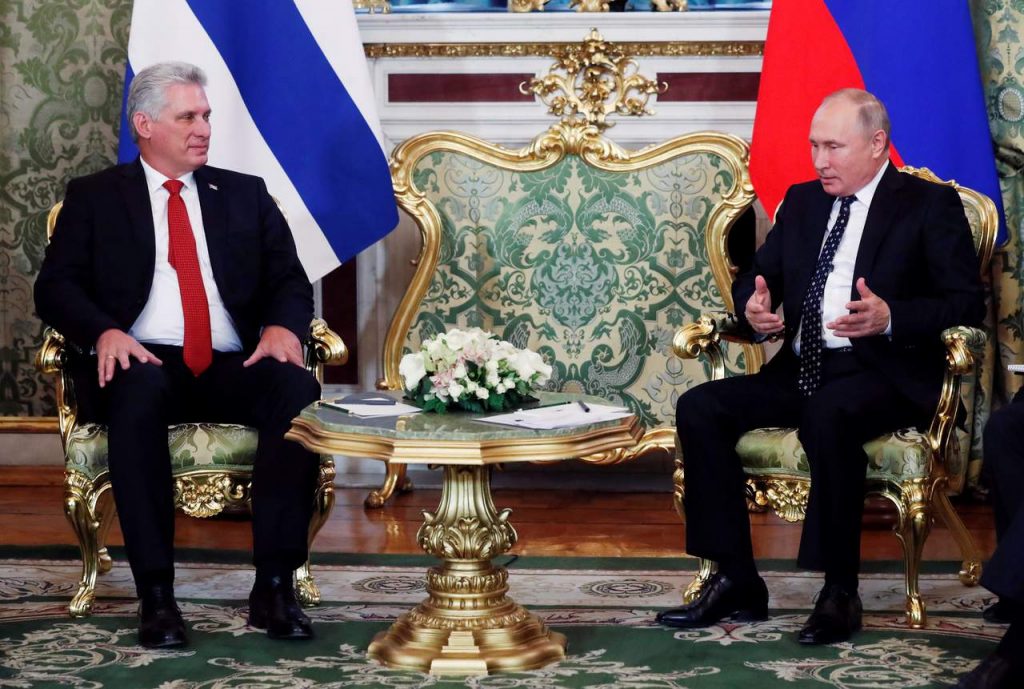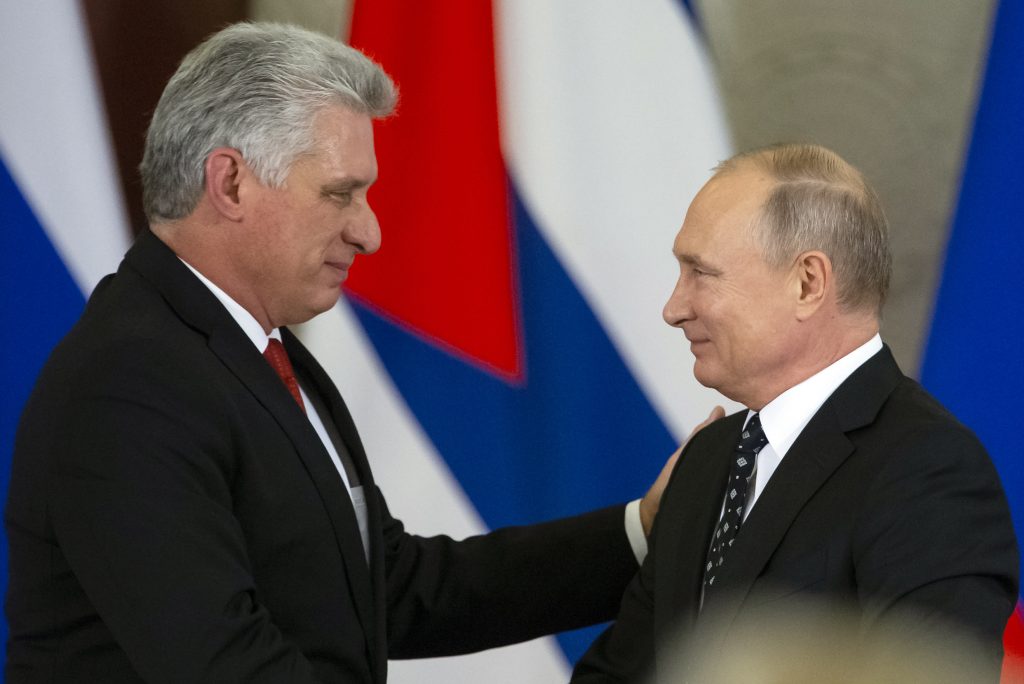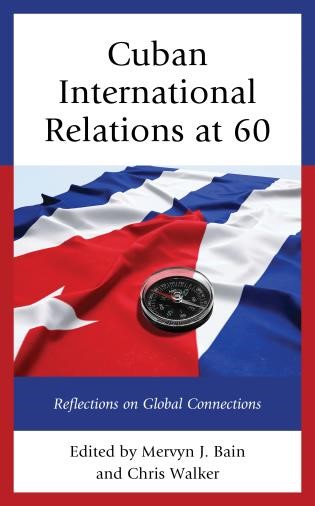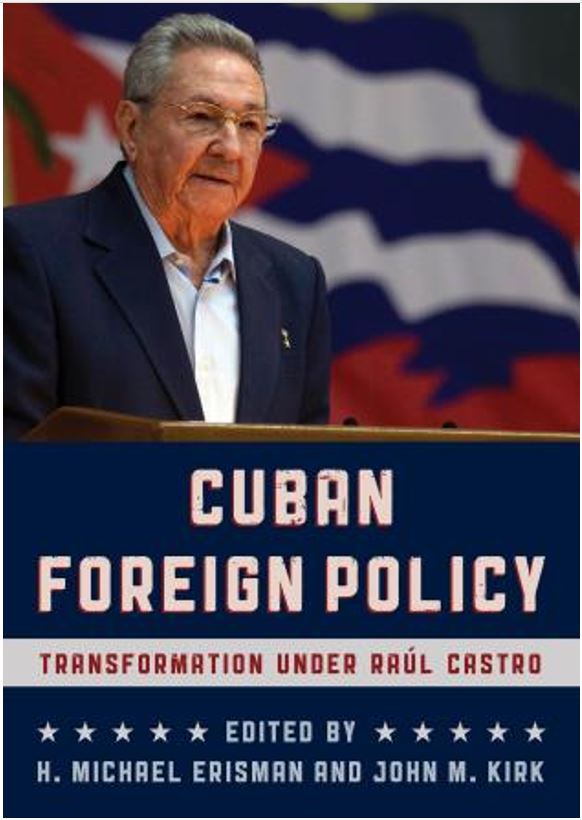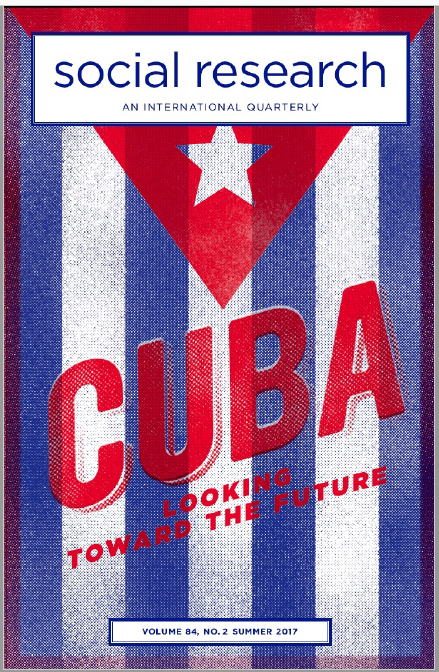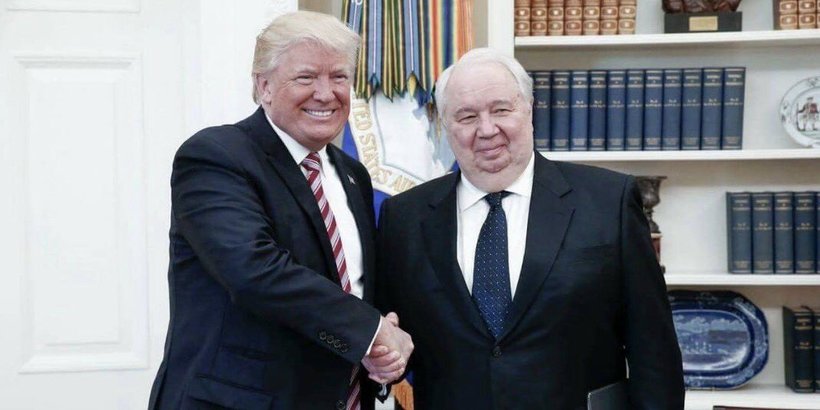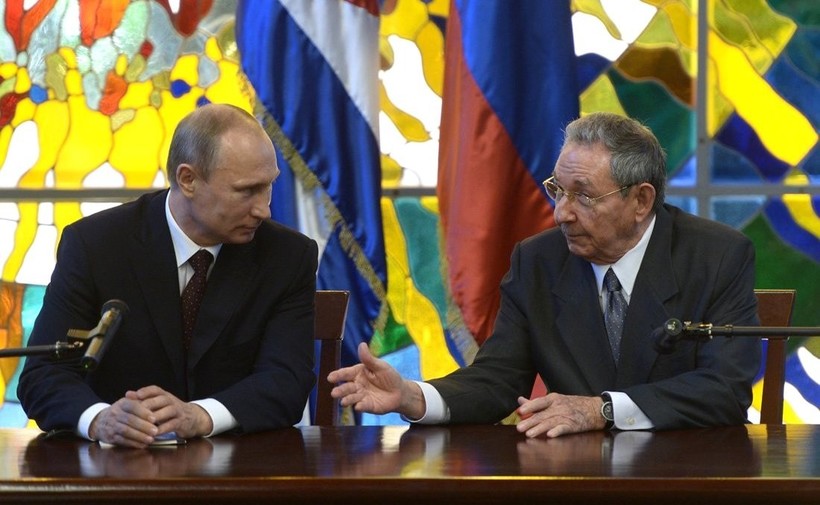Rolando Gallardo, Quito (Ecuador) | 03/06/2023

Analysis Original: La reconquista rusa de Cuba,
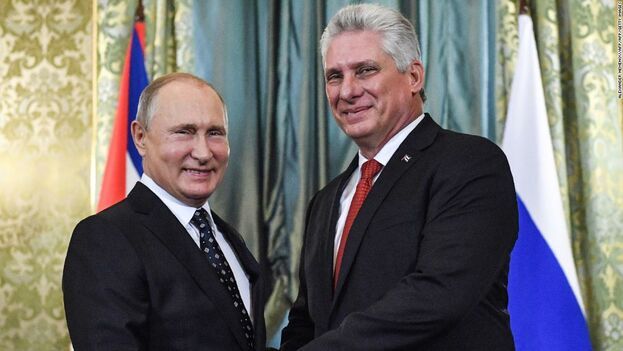
Tras veinte largas sesiones intergubernamentales entre Cuba y Rusia y una visita de apoyo moral de Díaz-Canel al carnicero de Ucrania, el guerrerista Vladímir Vladímirovich Putin, el régimen de La Habana abrió los brazos a las propuestas y presiones de la oligarquía rusa. Cuba atraviesa la crisis económica, política y social más grande de su historia reciente y para los buitres del Kremlin la fruta está pasada de madura. Las condiciones dejaron de ser meros puntos de negociación para convertirse en un “lo tomas o lo dejas”.
¿Qué busca Rusia en Cuba ganando tierras en usufructo por más de 30 años? Este es el cuestionamiento al que nos inducen los medios oficiales, cuando, sin lugar a dudas, es el elemento menos importante en la jugada geopolítica que se está gastando el débil régimen cubano.
Pongamos atención. Rusia es un país de 17 millones de kilómetros cuadrados, mientras que Cuba no supera los 11.000. La pequeña isla del Caribe cabe 1.545 veces en el territorio de la Federación Rusa. Se podría pensar que las tierras fértiles cubanas son un apetecible premio para los agricultores rusos y empresarios siberianos cansados de la nieve y los surcos congelados, pero tales ideas serían propias de un aldeano irracional. Hay que saber que las tierras más fértiles de la superficie terrestre se denominan chernozem, y se encuentran solamente en el 7% del planeta Tierra y de esa cantidad el 74% se encuentran en Rusia. Para ser claros, Cuba cabría 23 veces en el territorio altamente fértil de Rusia, y ni siquiera estamos hablando de las otras tierras cultivables del país más grande del globo. Un pequeño detalle: Cuba no tiene ni un metro cuadrado de chernozem.
Es evidente que no son las tierras “privilegiadas” de Cuba las que convocaron a la décima primera reunión de negocios entre los oligarcas rusos y la desgastada cúpula de poder cubana. Las palabras de Boris Titov, el rostro más visible de los multimillonarios de derecha rusos y empresario cercano a la casa Castro, deben servir de alerta para comprender lo que se nos avecina.
Pero los rusos cogerán la tierra para emplazar sus empresas y negocios sin pagar y gozando privilegios que no se le ha dado hasta hoy a ningún intento de empresa cubana
Dijo el “camarada” Titov en la inauguración de la XI Reunión del Comité Empresarial: “Existe todo un conjunto de propuestas para los empresarios rusos, como por ejemplo el usufructo de tierras por más de 30 años. Se garantiza la eliminación de aranceles para la importación de productos de alta tecnología y el derecho para poder enviar a Rusia los beneficios y las ganancias obtenidas en los negocios (…). Actualmente el Gobierno de la República de Cuba garantiza que este proceso se hará en tiempos breves con privilegios para los empresarios rusos”.
Pueden parecer inocuas estas palabras, pero es necesario traducir de las intenciones rusas al español de barrio. Titov es el principal preceptor de las directrices (exigencias) políticas de los oligarcas rusos al régimen cubano. La denominada “hoja de ruta” entre Moscú y la Habana son los mandamientos para avanzar con las inversiones. El documento oficial se conserva bajo cierto secretismo, como de costumbre, pero publicaciones asalariadas del Gobierno de Putin ya aluden a ella utilizando esa denominación.
De lo que se ha publicado por medios rusos se comprende que las tierras en usufructo no son más que la eliminación de arriendos de terrenos para empresas rusas, agrícolas o tecnológicas. Ni los americanos fueron tan desahuacatados con el Tratado de Arrendamiento de Bases Navales y Carboneras. El “imperio” siempre pagó arriendo. Pero los rusos cogerán la tierra para emplazar sus empresas y negocios sin pagar y gozando privilegios que no se le ha dado hasta hoy a ningún intento de empresa cubana sin asociación directa con el empresariado militar de la cúpula castrista.
Los rusos podrán ingresar tecnología para sus negocios sin pagar los aranceles que los cubanos sí tienen que pagar incluso por artículos de primera necesidad. Ellos tienen garantizado de que no los molestarán en la Aduana de la República de Cuba, mientras que los ciudadanos de la Isla no cuentan con ninguna seguridad.
El más escandaloso de los privilegios es que “se garantiza la eliminación de aranceles para la importación de productos de alta tecnología, el derecho para poder enviar a Rusia los beneficios y las ganancias obtenidas en los negocios”, según explicó Titov. Si es otro país el que habla de salida de capitales de forma libre, el régimen de La Habana y su prensa gritarán que son capitales golondrinas y buitres.
Los rusos pueden ser lo que quieran, pero bobos nunca han sido. Cuba es un país en crisis política y social, carente de liderazgo y un hervidero de conflictos silenciosos entre militares
Es natural que las inversiones buitres de Rusia lleguen en este momento con garantías de retorno a las cuentas de los oligarcas fuera de Cuba. Los rusos pueden ser lo que quieran, pero bobos nunca han sido. Cuba es un país en crisis política y social, carente de liderazgo y un hervidero de conflictos silenciosos entre militares, cuadros selectos del Partido Comunista y allegados al poder. En un país cada vez más inestable es obligatorio tener una ruta de escape de capital que no choque con trabas burocráticas y las faltas de garantías jurídicas.
El vice primer ministro ruso, Dmitri Chernishenko, declaró durante la reunión en La Habana: “Los Gobiernos de Rusia y Cuba trabajan en la creación de las condiciones beneficiosas para los negocios, eso supone la eliminación de las barreras burocráticas, la reducción de impuestos y aranceles, el desarrollo de la infraestructura bancaria para garantizar el servicio ininterrumpido”.
Son muchos los optimistas en redes que ven en esta jugada la salvación de la dictadura y el reflote de la economía doméstica cubana. La gran pregunta que deberían hacerse es en qué moneda piensan pagarle a los rusos los productos agrícolas y tecnológicos que desarrollarán en Cuba. ¿Creen de verdad que los millonarios ultracapitalistas rusos liderados por Titov quieren acumular pesos?



